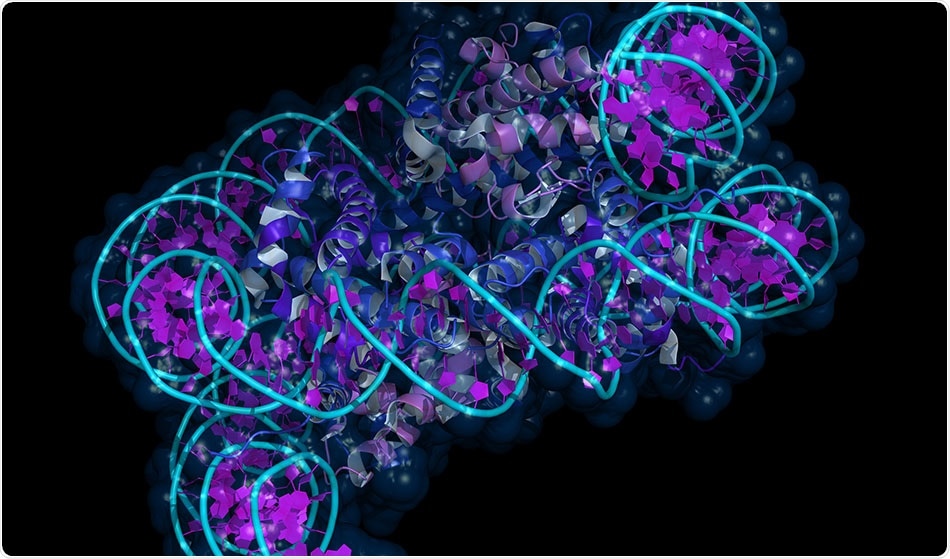In a new study, researchers at the Université de Montréal have discovered a molecule called Pax7 that opens up parts of the compacted genome, enabling access by transcription factors.

Credit: petarg/Shutterstock.com
Human DNA spans one to two meters, therefore the only way it can be squeezed into a cell is by compaction. DNA contains all the genes required to produce RNA; the intermediary molecule that codes for protein production and cellular activity. Transcription factors help this genetic information be copied into RNA at various stages throughout a person’s development, including the production of new cells. This enables stem cells to differentiate into specialized cells with different properties and functions.
For transcription factors to be able to perform this function, they need access to the necessary genes at the right time. However, they can only access the non-compacted parts of the genome, meaning other parts must be unlocked first if this cell differentiation is going to be possible.
To find out how this might be achieved, Professor Jacques Drouin and team looked at two types of pituitary cells that seem to develop using the same transcription factors. Theoretically, the cells should be identical, yet they are located in different parts of the pituitary and perform entirely different functions. The team focused on the Pax7 molecule and were able to demonstrate the crucial role it performs.
It's what we call a pioneer factor. Acting as a pioneer, Pax7 gives access to 2,500 new sites that transcription factors can bind to and express genes that were previously out of reach,"
Jacques Drouin, Researcher at the Montreal Clinical Research Institute (IRCM) and Professor at Université de Montréal's Faculty of Medicine.
This pioneer action is vital to embryonic development, as without it, cell diversification would much more difficult to achieve. . Furthermore, if the mechanism fails, tumorigenic genes could be expressed, leading to cancer.
Drouin’s team now plan to investigate Pax7 in more detail and identify the proteins that interact with it to open up compacted parts of the genome, which Drouin says could lead to the development of therapeutic targets.